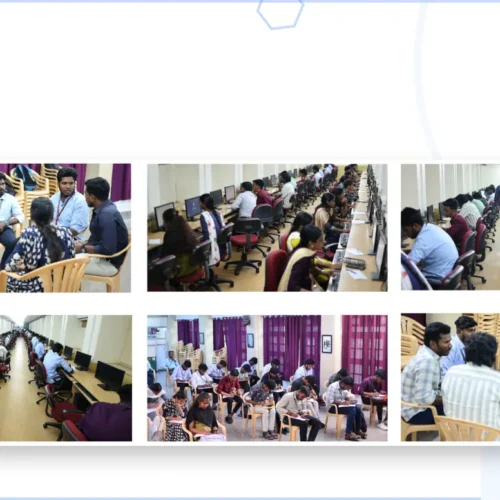If you’ve ever had your operations team chasing down incorrect container arrival dates, you know the frustration. A carrier updates the Actual Time of Arrival (ATA), but the date makes no sense, maybe it shows the container arriving after it’s already been unloaded. The result? Confusion in your tracking data, delayed updates to customers, and unnecessary exception handling.
CargoWise Next’s latest enhancement takes aim at this very problem. By automatically detecting and replacing abnormal ATA events, the platform ensures that your shipment milestones reflect reality, not flawed data. This is a big win for forwarders, NVOCCs, and shippers who depend on accurate event tracking to manage schedules and keep customers informed.
What Problem Does This Update Solve for the Industry?
In today’s logistics environment, freight forwarders handle complex, multi-source tracking data. Events can come from:
- Carriers (shipping lines)
- Terminal and port authorities
- Satellite tracking providers
- EDI feeds from third-party systems
The problem is that not all data is created equal. A single wrong ATA event can ripple through your CargoWise workflows, causing:
- Mismatched milestone dates
- Incorrect KPI reporting
- False alerts to customers or internal teams
- Extra work for operators who need to manually correct data
In an industry where timely and accurate status updates are essential for customer trust, these errors can cost you more than time, they can cost you business.
How Does CargoWise Handle Abnormal ATA Events Now?
The new CargoWise enhancement does two things, depending on where the ATA event comes from:
If the abnormal ATA is from a carrier:
- CargoWise automatically replaces it with an AUX – Auxiliary event.
- This prevents incorrect ATA dates from overwriting valid milestone data.
If the abnormal ATA comes from a non-carrier provider (such as a port authority, terminal, or satellite tracking service):
- CargoWise replaces it with an STU, Status Updated event.
- This preserves the event record without compromising key arrival dates.
If the actual arrival date is later than the unload date for all containers in the booking at the same port, it’s flagged as abnormal and replaced with a more accurate placeholder event.
Why is This Important for Your Day-to-Day Operations?
Accurate shipment event tracking is the backbone of operational efficiency. When you eliminate abnormal ATA events, you:
- Reduce data cleanup – Your operators spend less time correcting milestones.
- Improve customer trust – Clients see accurate, consistent tracking data.
- Simplify KPI reporting – Performance metrics reflect true operational timelines.
- Protect automated workflows – Triggers and alerts fire correctly, without false positives caused by bad data.
This directly supports other CargoWise features you may already be using, like automated milestone notifications, exception management, and operational dashboards.
How Does This Fit Into the Current Logistics Landscape?
The last few years have seen a major push toward real-time visibility in freight forwarding. Customers expect shipment updates that are:
- Immediate
- Accurate
- Actionable
But the more data sources you integrate, the more potential there is for errors. This update reflects a broader industry trend: intelligent filtering of raw data before it reaches the customer. Rather than just “integrating everything,” smart platforms like CargoWise are learning to validate and contextualize data, so you can trust the milestones you see.
What’s the Business Impact of Cleaner Arrival Data?
Let’s break it down into tangible results:
1. Fewer Customer Service Calls
When arrival data is consistent, customers don’t need to call or email for clarification.
2. Reduced Manual Corrections
Operators can focus on moving shipments forward, not fixing flawed records.
3. More Reliable Analytics
Supply chain performance metrics, like on-time arrival rate, are only as good as the data they’re built on.
4. Better Exception Management
When you do get an exception, you can trust that it’s real, not a phantom caused by bad data.
How Should Freight Forwarders Adapt Their Workflows Around This?
Even with CargoWise doing the heavy lifting, it’s smart to:
- Train staff on what AUX and STU events mean in the system.
- Adjust workflow triggers if they currently rely on raw ATA events.
- Review historical data to see if old abnormal ATAs are skewing performance metrics.
This is also a good moment to audit your other event-based automations. If CargoWise is already filtering abnormal ATAs, what other milestones could benefit from similar validation?
What’s Next for Event Data Accuracy in CargoWise?
Given the increasing complexity of carrier integrations and third-party data feeds, we can expect CargoWise to continue building intelligence into event handling. That means:
- More validation rules for other key milestones (e.g., Actual Time of Departure, Gate Out, Customs Release).
- Smarter exception alerts based on historical patterns.
- Potential use of AI to predict milestone accuracy before events are confirmed.
This is all part of a shift toward data you can act on immediately, without worrying about whether it’s correct.
Conclusion
CargoWise’s enhancement for abnormal ATA detection isn’t just a technical tweak, it’s a meaningful step toward more reliable operations. Ensuring that your arrival events reflect reality it protects the integrity of your workflows, your KPIs, and your customer updates.
For freight forwarders, this means less firefighting, more accurate planning, and smoother customer communication.
If you want to make sure updates like this are fully optimized in your CargoWise environment, and that your workflows, automations, and reporting are all aligned with cleaner data, our team of certified CargoWise consultants can help.
Let’s talk about how we can fine-tune your CargoWise setup so you’re always working with the most accurate, actionable data possible.






